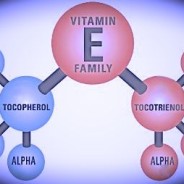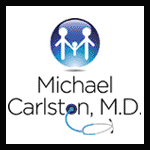
The chorus of superficial and ill-informed anti-supplement articles continues to drown out better studies proving the benefits of supplements. Two studies published around the turn of the new year added support for using vitamin E to protect brain functioning against dementia, including Alzheimer’s.
The first study was a small segment of a very big ongoing Finnish study called Cardiovascular Risk Factors, Aging and Dementia (CAIDE), researching connections between cardiovascular disease and memory disorders. The larger study, which began in 1998, led to other discoveries, such as the substantial cognitive benefits of 3-5 cups of coffee a day and, even more profoundly, the brain-enhancing impact of habitual exercise.
In this study they measured the levels of several forms of vitamin E in 140 healthy seniors, and followed them over eight years with cognitive testing. They found a strong correlation between certain forms of vitamin E and reduced risk and severity of dementia.
As I have written about several times in the past, there are many, many forms of vitamin E. The kind of E contained in most supplements, (dl alpha tocopherol) is synthetic. Our bodies can use the “d” form but not the “l” form. Even d alpha tocopherol is just one form of many naturally occurring forms, AND a great deal of research tells us that other forms (especially gamma tocopherol and probably delta tocopherol as well as the tocotrienols) are the ones our bodies really need. Furthermore, it is well-recognized that our measurement (i.u.) is really only a measure of activity in rats, not people.
It was not surprising then, that in this study the researchers found that gamma tocopherol, beta tocotrienol and total tocotrienols were the effective forms of “vitamin E”. This should now be obvious, as the same has been seen in other studies. For example, findings that these “other” forms of vitamin E lower Alzheimer’s disease but NOT the plain old alpha tocopherol version, and this one as well. In 2012, the international consortium of experts empaneled to review research in their area of specialization, concluded that vitamin E was not helpful but, even then, they also felt the need to comment that the other forms of vitamin E might well be effective, calling for (as always) more research.
Another new study published Jan 1 in the Journal of the American Medical Association provided additional encouragement. This study compared the response of Alzheimer’s patients to placebo, a conventional drug, the conventional drug plus 2,000 iu of the not so ideal form of vitamin E (alpha tocopherol) or just that form of vitamin E. Measuring over a five year period, the two groups receiving the vitamin E did the best. Those patients needed less help and their cognitive decline was considerably slowed. One would have wished that they had known to provide a better quality supplement, especially given the proven impact of non-alpha tocopherol forms of vitamin E.
The bottom line, once again, is that the kind of supplement is vitally important. Taking “vitamin E” is highly likely to preserve brain power with age. However you MUST take the more important, less available forms and, as always, eat a healthy diet, exercise, manage stress, avoid toxic exposures, boost your omega-3 and exercise your brain.
